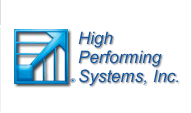Debra Cannarella
VP of Operations, High Performing Systems, Inc.
In leader, team and organizational training, the concept of Reality Testing can be practically applied to improve outcomes around strategic goals. For example, during a coaching session with a CEO on leading his business, HPS had a conversation with our client about “Reality.” The CEO’s concept of organizational success was far from realistic: it was a lofty vision of how he wanted things to be. Our client dreamed so big that he disconnected himself from the real world. Using the concept of Emotional Intelligence (EI), we helped our client set more achievable goals and see them through to completion.
Within the context of the EQ-i 2.0, a scientifically-validated EI measure, Reality Testing is defined as the ability to focus on the facts, be objective and see things the way they really are while understanding how one’s own bias could affect judgment.
We administered the EQ-i to our client and worked with him to create a development plan to contain his weak areas—Reality Testing in particular—while enhancing his strengths. It took several coaching sessions before he was able to alter his mindset and pragmatically evaluate his goals. By applying a realistic lens to his outlook, all his big dreams and impossible ideals gave way to a clearer vision. Understanding Reality Testing helped our client become grounded.
If Reality Testing is an area of need for your clients, here are coaching techniques to improve this skill, including how we applied them to this specific situation. Use these tips to keep your clients focused, objective and tuned in to the real world.
• Raise Self-Awareness
• Know how emotions affect your perceptions
By encouraging our client to look deeper into his own emotions, we helped him gain a better understanding of how his emotions were indeed creating unrealistic views about his organization. He saw how his optimism affected his perception, which caused him to set lofty goals that were not realistically achievable.
• Collect objective data from multiple sources
• Create working hypotheses (not conclusions)
We tasked our client with gathering qualitative and quantitative data through interviews with customers and staff, reviewing documents and reports and making real-time observations within the company. This expanded his awareness and allowed him to see pros and cons based on objective information. The process required him to create working hypotheses based on empirical data prior to making any changes to the company’s vision and goals.
• Get other people’s perspective of the situation
• Determine the emotions involved in the situation
Filtering the world through our own lens restricts us, while being able to see through the lenses of others provides a broader, more comprehensive view. Our client learned the importance of listening to other perspectives and how those views could help him understand the situation more clearly.
• Don’t over-generalize
• Make decisions objectively
Our client had a tendency to over-generalize past successes to justify his unrealistic plans. As he decided on future goals, we coached him on how to apply analytical techniques to avoid errors in thinking.
After understanding how emotions impacted his goal setting, our client was able to re-evaluate his vision for the company. We coached him to gather data, including input from other people, and to evaluate objectively. This process allowed him to adjust his vision in a way that brought balance between his optimism and the reality of the situation.
For a printable PDF of this article, click here.
_____________________________________
Debra Cannarella is the VP of Operations at High Performing Systems, Inc. (HPS), a consulting company that provides assessments, consulting and training solutions to help organizations excel. HPS conducts certification training on the EQ-i 2.0 assessment and provides individual, leader and executive coaching to clients. Contact Debra by email at debra@hpsys.com.
High Performing Systems is an award-winning world leader in EQ-i 2.0® certification (since 2005), EI training and implementation, leader coaching and success profiles. Call 706-769-5836 to talk with an experienced EI practitioner about your organization's specific needs. |
